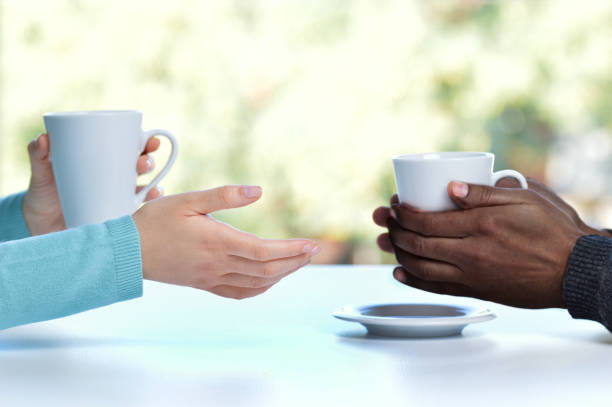Given all that we’ve been through with this pandemic and life in general–would you like another way to see your life related to trauma, resilience and healing? Through some deeply personal conversations, in a new book, Oprah Winfrey and renowned brain development and trauma expert Dr. Bruce Perry discusses the impact of our pasts and how healing must begin with a shift–and what a valuable shift it is!
Sometimes a book or new information comes across our path at exactly the right time, and that is what happened to me with this book titled “What Happened to You?”. After hearing an interview with Oprah on a morning show–I knew this was my next audiobook lesson because it made so much sense to hit PTSD (post-traumatic stress disorder) on a deeper level. It’s a subtle but profound shift in our approach to trauma, and it’s one that allows us to understand our pasts in order to clear a path to our future―opening the door to resilience and healing in a proven, powerful way.
Although we’d love to push trauma to the side, with a ‘Not now! Can’t you see I’m busy?’, there’s also a knowing that there’s never going to really be a good time and that maybe, just maybe, there’s a reason it’s all coming up for me now.
Dr. Perry’s work on understanding how the brain’s development is impacted by early trauma helps explain why we behave the way we do, (i.e. why some people lash out in anger and others withdraw into themselves). Yes, there’s science in this book but it was explained in a way that was easily understandable–plus, you’ll learn about people with whom Dr. Perry has worked and Oprah’s own experiences.
Oprah shared some childhood trauma experiences: while being raised by her grandmother in rural Mississippi–there were many whippings that drew blood and later welts from her hand-picked switches over her developing years. Later, while practicing a scene for an upcoming movie she was told to lovingly “tuck in” a child for the night. After the third time of not doing it correctly, she admitted she did not know what that meant. Later, she asked herself “what happened to me that I reacted this way to that command”, and she realized that she had never experienced this loving care in her life and felt embarrassed and ashamed. However, eventually her work helped her realize her grandmother did the best she knew to do at the time and this particular part of her childhood trauma was eased over time..
It takes courage to confront our actions, peel back the layers of trauma in our lives and expose the raw truth of what happened–this is where healing begins.
Dr. Perry also shared: “The shift from asking ‘what’s wrong with you?’ to ‘what happened to you?’ is something I’ve yearned to hear for most of my life. Western society is so fixed on labels, which I know have their place and can be useful, but all too often posting a diagnosis (or multiple diagnoses) on someone marginalizes them more than it helps them. If we don’t get to the core of why a person behaves the way they do then we’re really missing the point, and the opportunity to best support them.”
This seemingly small but significant shift allows us to look at a person or ourselves not from a place of judgement but from a place of curiosity regarding what went on before certain negative or toxic reactions/behaviors reared their ugly head–affecting our physical, mental and social health. So understandably, how we were raised (including the generations that came before us) gives us a particular colored lens from which to operate and to view/judge the world.
Racism can filter in without us even knowing it–how were black and brown folks referred to or treated by our parents, teachers or coaches–it’s part of our DNA. And it takes work to undo those belief patterns, even though we may not feel we have a “racist bone in our body”. Through ongoing learning of our American history and how minorities through the years have been marginalized, compassion and empathy can grow for our fellow human beings. Through the years our negative actions/treatments of minorities have left them feeling put down one way or another and told they just weren’t good enough.
Regarding working with past traumas, teachers bear a lot when working with many students. As a result, Dr. Perry has developed a course to help educators understand student behavior and performance. It’s called The Neurosequential Model in Education (NME). Talk about being able to impact a life!
Resilience: we may discount someone’s trauma by saying “they’ll get over it, they are resilient”–however, by not being addressed, the traumatised individual withdraws feeling even more alienated and isolated.
All of us want to know that what we do, what we say and who we are, matters.
Post traumatic wisdom: when we’ve been able to get through adversity and now we are in a safer place in our life–we can look back and reflect and take what we’ve learned and see the world differently–using our pain and transform it to power–being better able to reach out to help someone process their traumatic experiences takes loving connections and our community to build this important resilience and healing. Again, love is the key…versus judgement and hate.
Warriors, as we work through the experiences of our past, know that no matter what happened, our being here, vibrant and alive, makes us worthy. Know that we alone are enough! And, It’s important to understand that we don’t always know, or get to know, what happened to someone that shaped the way they’re showing up. So, let us be kinder than necessary, because everyone is fighting some kind of battle.
Covid19 Humor: Husband and I went grocery shopping with masks, got home, took off masks, brought home the wrong husband. Stay alert people–or not!!

